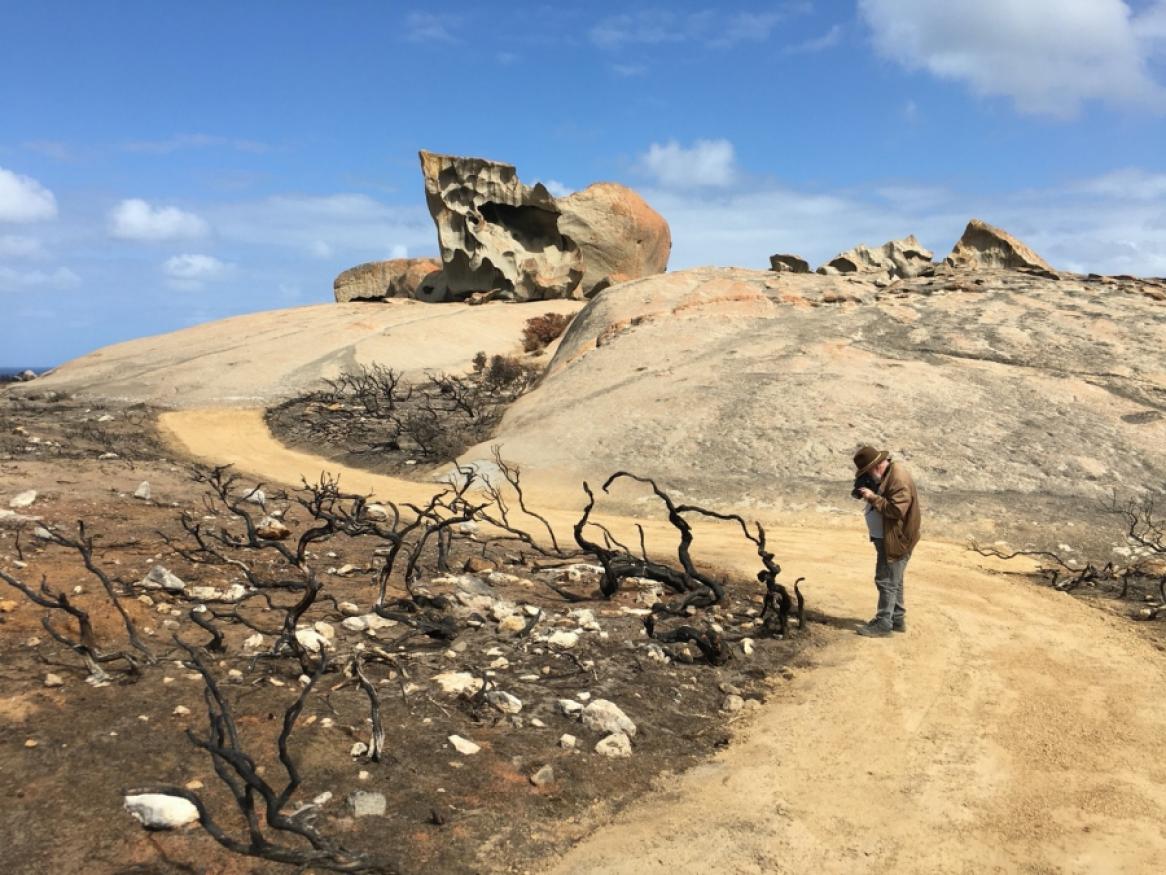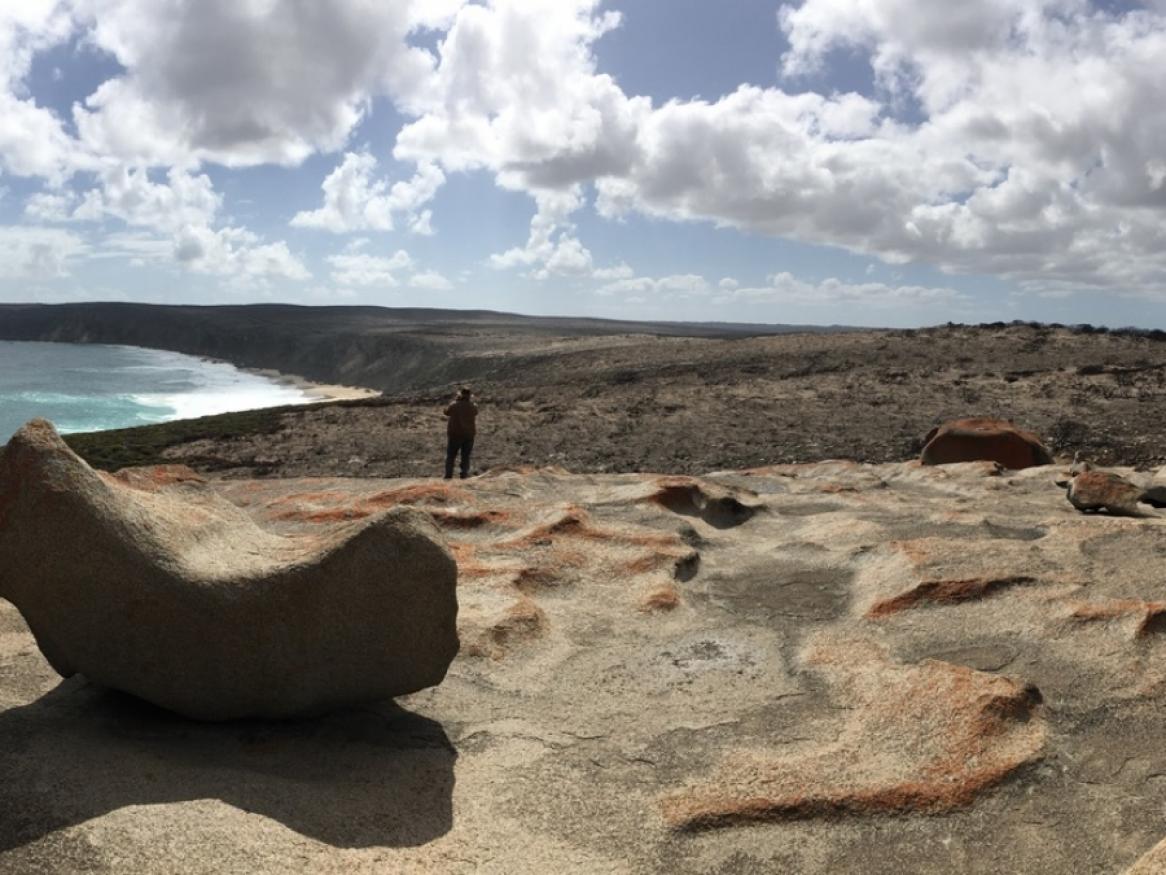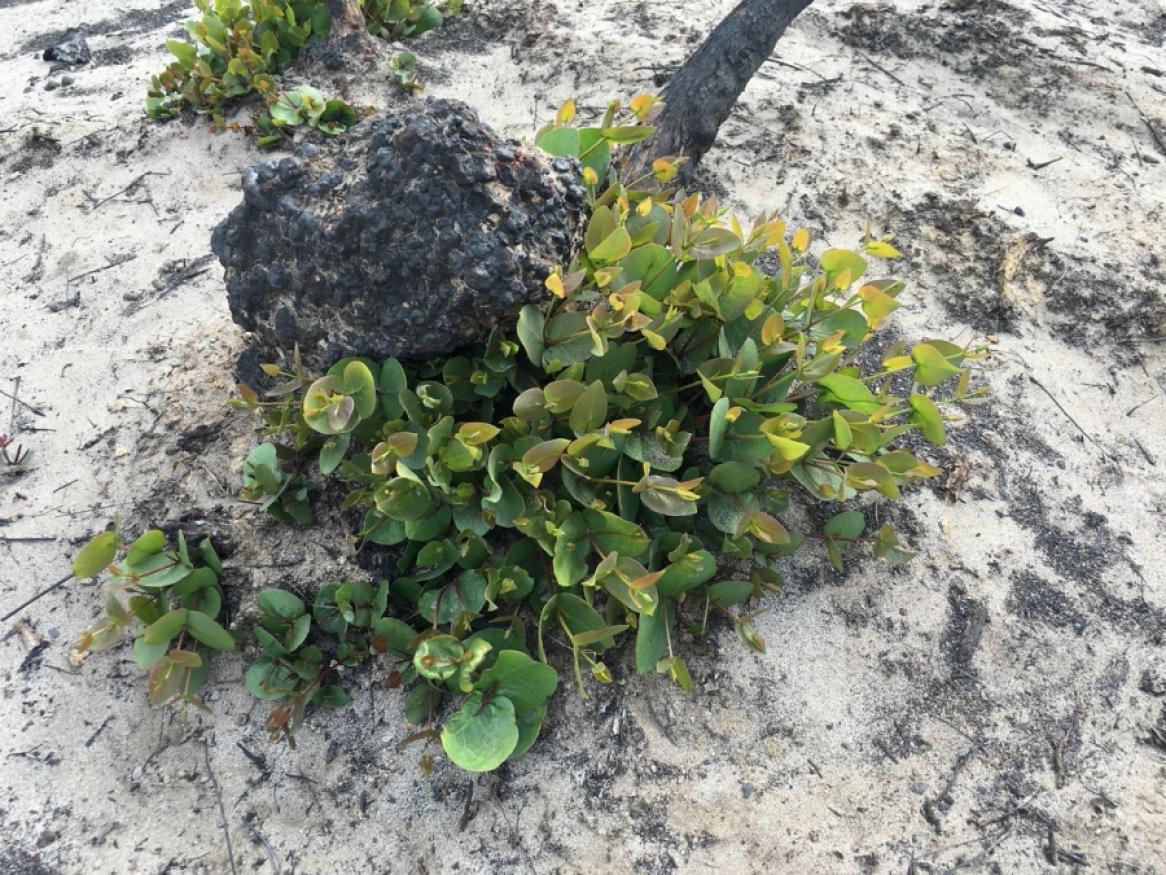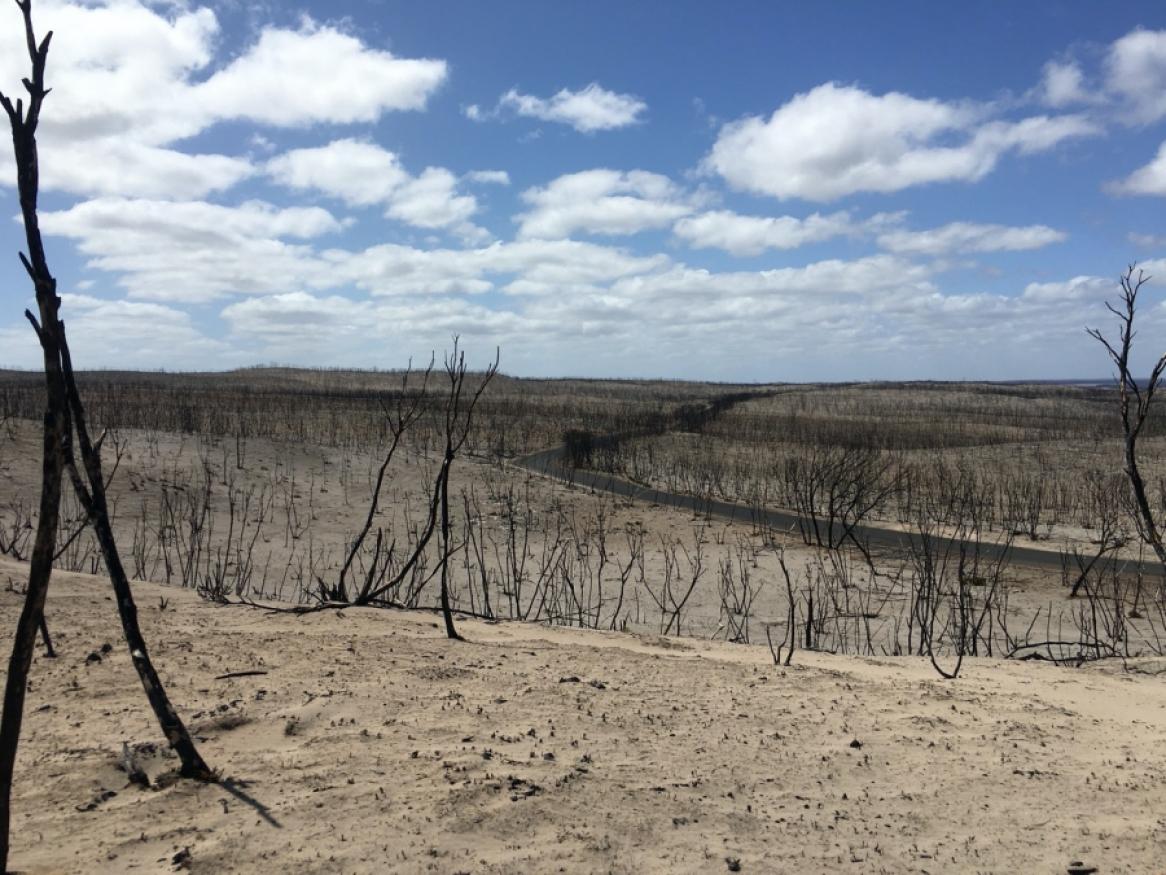Bushfire response
The 2019-2020 bushfires in South Australia
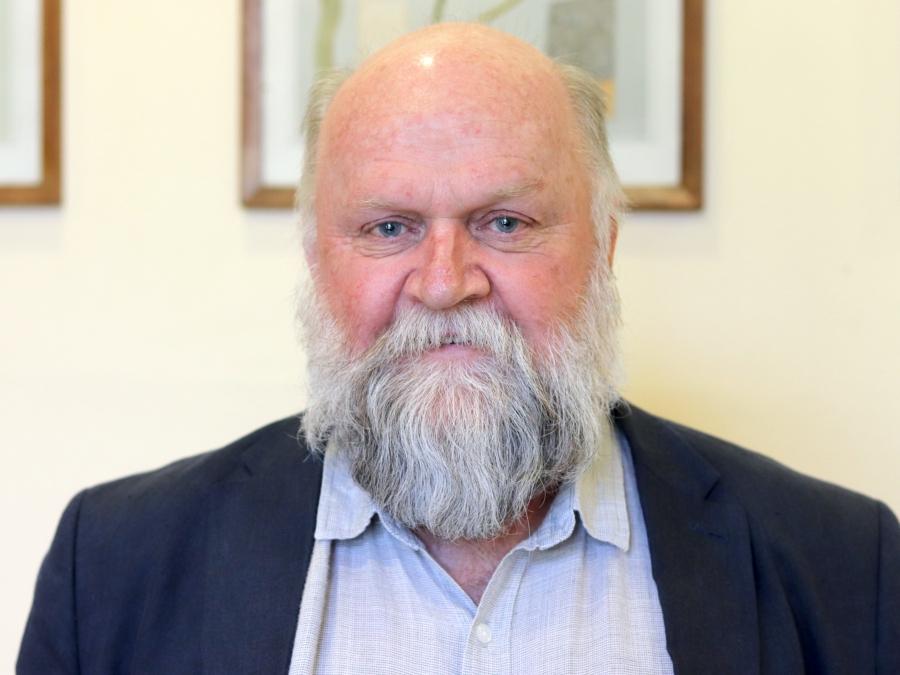
The recent shocking sequence of bushfires across the southern and eastern coast of Australia has surprised all of us.
Locally, in South Australia, we have experienced some extremely challenging times. The impacts of these fires will be felt for decades to come and the response to them will be complex. I have been involved in some aspects of these responses and many University of Adelaide staff have relevant expertise to assist with the recovery process.
The Cudlee Creek fire was large and intense, impacting on many people’s lives and livelihoods. When homes are destroyed and iconic sites are inflicted with high-level damage, people’s lives are heavily disrupted. This affirms the significance of these events and how critical it is that we work to control the occurrence and impact of similar events in the future.
The real shock of the summer for me was the Kangaroo Island fires. At present, we know that more than 200,000 hectares of Kangaroo Island was burnt, nearly half the island’s total land area and that includes some world-famous wilderness areas. In the process, countless thousands of animals have perished, and that is just the vertebrates, there will be no way of accurately estimating the total damage to invertebrate species.
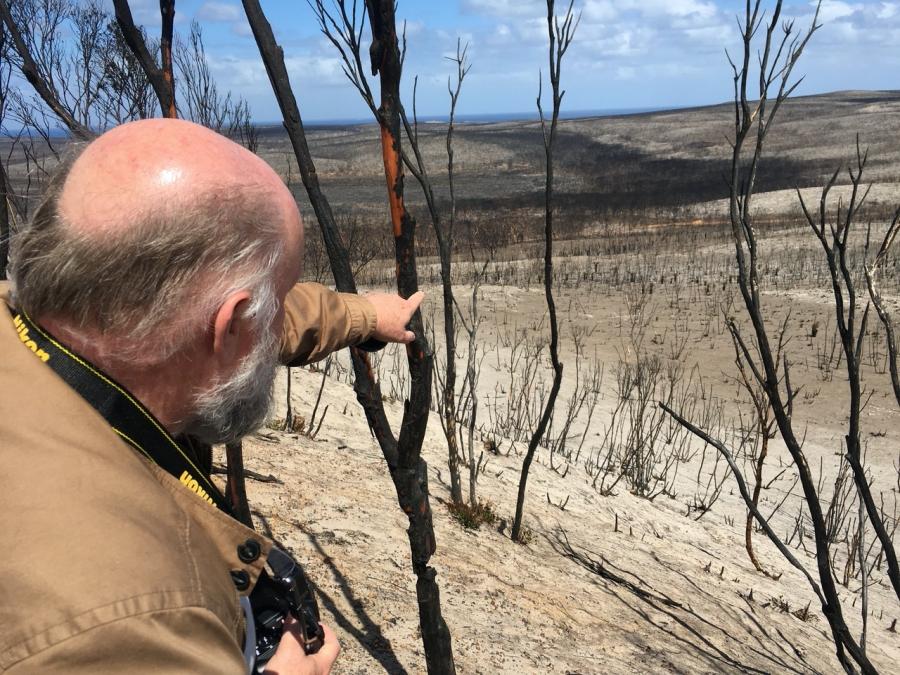
Professor Bob Hill spots an echidna whilst visit Kangaroo Island recently.
As a botanist, the shock of this fire was its intensity and coverage. I have spent my career working on the long-term evolution of the Australian vegetation and a critical part of that evolution has been the way species have adapted to the relatively high natural fire frequencies over much of our country. Those adaptations are highly varied, and they have worked well for tens of millions of years. But now they are failing. Why? Because these fires are, in places, so intense that the species adaptations fail.
- How can a soil-stored seed bank germinate after a fire if the temperature was so high that the seeds have been destroyed?
- How do eucalypts recover vegetatively from protected buds on stems or underground lignotubers (massive woody structures that protect thousands of dormant buds) when the stems have been totally destroyed and the lignotubers are smouldering embers long after the fire has passed?
- How does a Banksia cone release its seed into the soil after the fire passes when the cone has been totally incinerated?
I spent three days on Kangaroo Island recently and that included a tour of the fire sites. The worst area is Flinders Chase National Park, where most of the vegetation has been burnt – the scale is enormous. As far as I could see the eucalypts are coming back vegetatively from the base, so it could have been worse, but i fear for the seed bank. The bare sandy soil has almost no ash cover and it will be interesting to see how much see germinates falling winter rains.
Climate change is finally being recognised as the cause of these extraordinary events. It may be too late, we can only hope that this isn’t the case. The key issue now is to maintain the push to see genuine change as a result of these fires.
There is a remarkable talent pool within our University with crucial skills for fire recovery. The Environment Institute will provide the best support we can so that these people can do their work as productively as possible.
Professor Bob Hill
Update 26th March 2020
Since writing the piece above, we have compiled a comprehensive list of willing experts, ready to aid in the recovery. Please share with your associates or make use of it within your organisation. These are mostly Environment Institute members who realise how important this recovery effort is.
View or download the list below.
Remarkable Rocks, Kangaroo Island.
Vegetation has been burnt right up to Remarkable Rocks, Kangaroo Island.
View from Remarkable Rocks
View from Remarkable Rocks looking out over burn area.
Sprouting vegetation
There are signs of hope with native vegetation starting to sprout.
Burnt area at Flinders Chase
The burnt area went as far as the eye could see.
Make a gift
Much of our research is focused on climate change solutions and ways we can prevent this kind of fire in future. We would appreciate your donation to continue this groundbreaking work. We are very grateful for your support.

